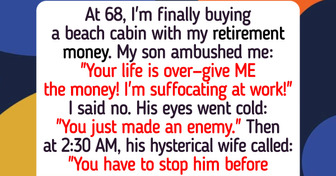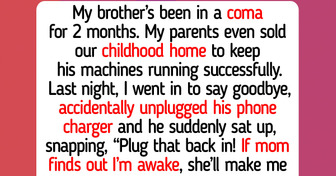15 Moments That Show Kindness Is Quiet but Changes Everything


“The more bars you see on the screen of your gadget, the better the network quality is.” In reality, the number of bars only indicates how strong the network is. It has nothing to do with the quality of the connection.
For example, you can be right next to a cell tower, and there will be maximum network bars on the display. But if there are many users connected to the same network, the quality of the signal will be poor. Then your calls might drop, and your Internet will be slower than usual.
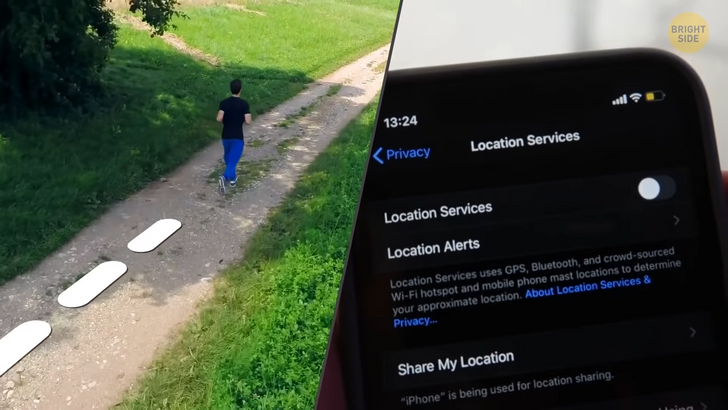
Your phone can still be tracked even if you’ve turned off location services and GPS. It’s possible to figure out where your device is by gathering data from its sensors, like gyroscope or accelerometer. Also, it can be tracked via cell towers and Wi-Fi networks.
It’s a common misconception that the more megapixels your camera has, the higher quality your pictures will be. In reality, more megapixels only give you the ability to zoom, crop, and print larger posters.
“If you turn Wi-Fi and Bluetooth off when you aren’t using them, you can save battery.” Well, if you ARE using these services actively and then switch them off, it WILL make a difference. But if your Bluetooth and Wi-Fi are idle, they don’t affect the speed at which the battery loses its power.
If your computer is working more slowly than usual or has process errors, it doesn’t necessarily mean your device has caught viruses. There might be too many background operations active at the moment. Your computer may be clearing Internet browsers, closing the programs you aren’t using, and so on.
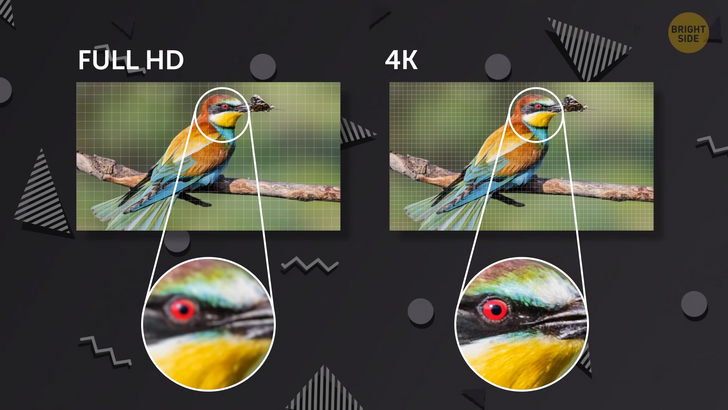
Higher resolution doesn’t always mean a better and brighter display. Resolution is only one of several factors that affect the quality of your smartphone’s screen. A lot depends on the type of panel used on your gadget.
For example, LCDs might have brighter colors, but OLED devices have better contrasts. It’s true that a bigger battery has more power. But how much backup it has depends on how this power is used by the whole system. In other words, a gadget with a smaller battery can actually last longer if its operating system is optimized better.
Lots of people are sure no one can track them once they switch on incognito mode when surfing the Internet. Indeed, this way, your browser won’t save cookies, history, and the information you enter in different forms. BUT! The websites you use (as well as authorities) can easily track you. This means incognito mode doesn’t hide you from the world completely.
To wipe your computer’s hard drive, you’d need a really, really huge magnet. Hard drives on modern devices can only be affected by extremely focused magnetic fields. Good old fridge magnets are nowhere powerful enough.
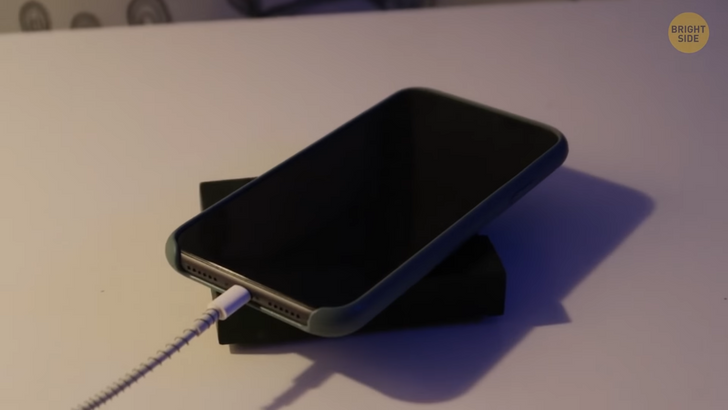
If you accidentally left your charger plugged in after you finished charging your gadget, there’s no need to panic. It’s believed that a fire might start in case of a power surge. But it’s only true in several situations.
For example, if you have pets that are interested in chargers. Or if your charger makes weird noises or has leaks. Or if the place where you live doesn’t have any lightning protection. Or if there’s a chance of your neighbors having a water leak. In all other cases, you don’t have anything to worry about.
Many people are sure it’s a bad idea to use phones while they’re charging. These users believe it may shorten the battery’s lifespan. Others think the battery won’t charge as well as it could. But this is nothing but a myth. Even when you aren’t using your gadget, it’s still busy with different activities, for example, synchronizing data.
It means you can easily add several more tasks to its workload. Clearing background apps doesn’t lead to better performance. It also does nothing to save battery. Your phone’s operating system is smart. Once it needs additional resources, it automatically closes background apps.
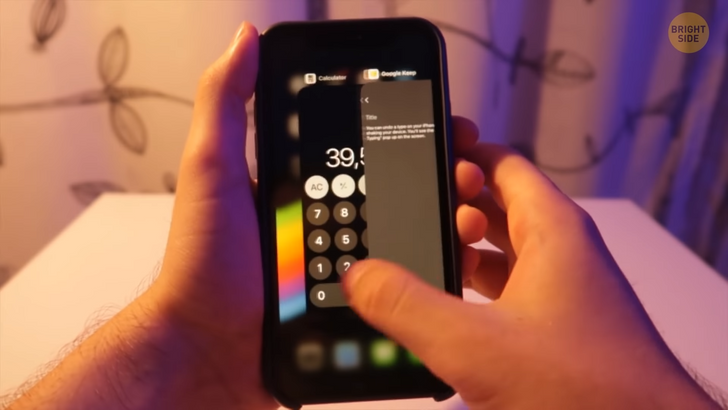
Also, closing applications and opening them again drains your battery much faster than when you leave these apps be. “Put the battery in the freezer, it will last longer.” No. Do NOT do this. This myth comes from the 80s.
Then, people put batteries in the freezer for short periods of time to make them work longer. But these days, such a procedure can actually destroy your gadget’s battery. Lithium-ion batteries react badly both to cold and hot temperatures. The most comfortable environment for such a battery is room temperature.
Antivirus software doesn’t provide your device with 100% protection. You regularly install new security programs, and they seem to effectively remove viruses from your computer. But new kinds of malware appear literally every day, and there’s no guarantee your antivirus knows how to deal with them.
Power banks can harm neither your phone nor its battery. What CAN lead to dramatic consequences is using a power bank with a higher voltage than your gadget can handle. That’s why professionals recommend picking only high-quality power banks.

Experts say you should download apps only from official stores. But it doesn’t mean everything you get there is 100% safe. Yes, it’s way less risky to use official stores than third-party sites. But there have been cases where even official stores had to remove sketchy apps from their platforms.
Airplane mode does help you charge your phone faster. But you might not notice the difference. Experiments have shown that airplane mode only shaves from 4 to 11 minutes off your phone’s charging time.
A higher amount of RAM doesn’t always mean better performance. But it’s true that a device with more RAM can have more apps open in the background if you compare it with a gadget with less RAM. You can also access the most important and often used info faster because it’s kept in RAM.
You won’t damage your phone’s battery if you leave it to charge overnight. Your gadget will be plugged in long after its battery is full, it’s true. But it isn’t something to worry about.

Experts have different opinions on the matter. Some of them claim that overnight charging may cause the smartphone’s battery to age faster. Others say it doesn’t have any visible effect on the battery. Mac computers can also be affected by malware. It’s true that they aren’t as vulnerable to viruses as other computers. But in some cases, their built-in security features aren’t enough to save you from all kinds of risks.
No study has ever proved that cell phones emit radiation that’s bad for your body. The radiation we’re talking about is the radio-frequency one. It’s much, much weaker than the ionizing radiation, a doze of which you get every time you have an X-ray.
Third-party task managers do not prolong the battery life or boost the phone’s performance. The built-in system on your phone is already doing everything possible to make your gadget work as effectively as possible. As for the third-party managers, they can indeed control the apps you use. But they don’t have any positive effect on the battery life. Emptying the Trash or Recycle bin on your computer doesn’t mean you delete the files you don’t need permanently.
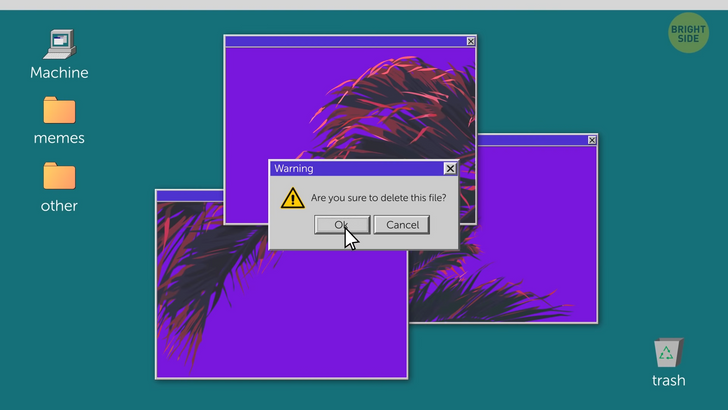
You only erase the links to the files, but tiny pieces of data remain. There’s a chance someone will connect these chunks of information. Then they’ll be able to recover some files you thought didn’t exist anymore.
It’s still a popular belief that you need to charge a newly bought phone to the full before you use it for the first time. But phone batteries work best when they’re charged up to 40 to 80%. And that’s about as much charge as a smartphone you get from a store has. This means you can buy a phone and start using it right away. But if a new phone’s battery indicator shows less than a 40% charge, you should probably take it back to the store. Such a low percentage might mean the battery is old.
The belief that the larger a video or audio file is, the better quality it has isn’t always true. The size of a file depends not only on its quality but also on the way it was compressed. Some people think they can train their battery so that it can stay charged longer. To do so, they wait until the battery drains completely before they charge it again.
Their idea is that their batteries have memory. And if you don’t make it a habit to charge them when the indicator is almost zero percent, they won’t work as well as they used to. But the truth is Lithium-ion batteries last the longest when they’re half-full. Plus, if you discharge such a battery completely for a long time, you can permanently damage it.


